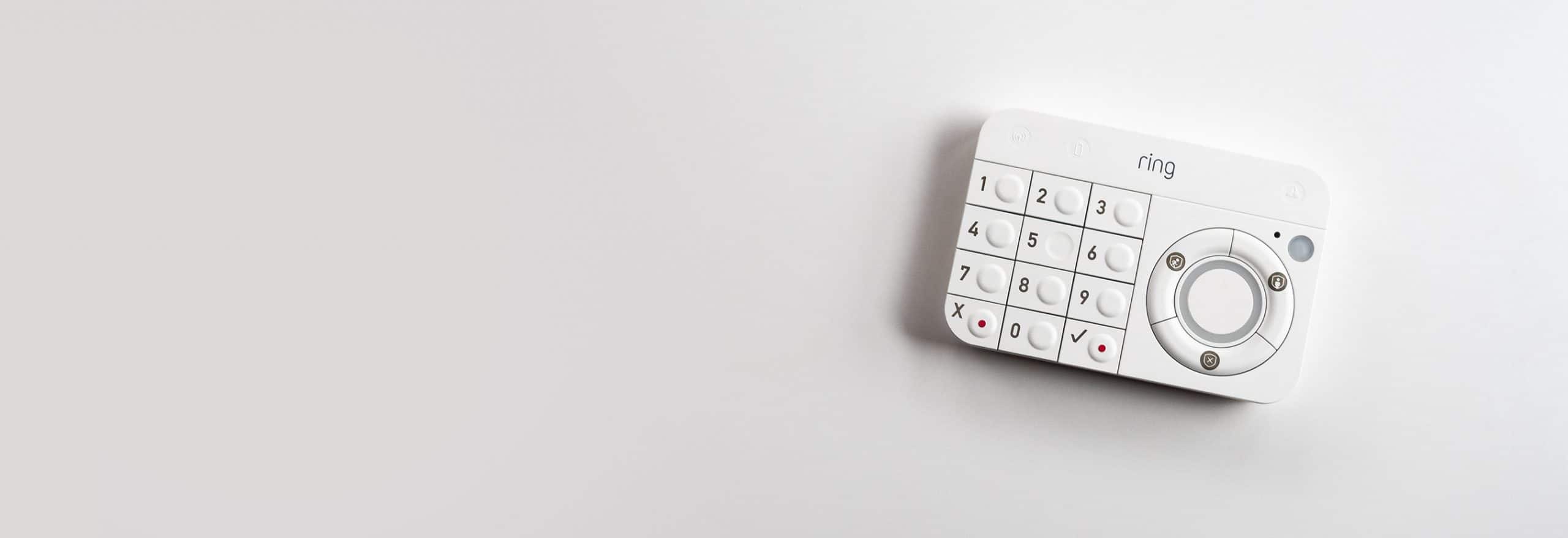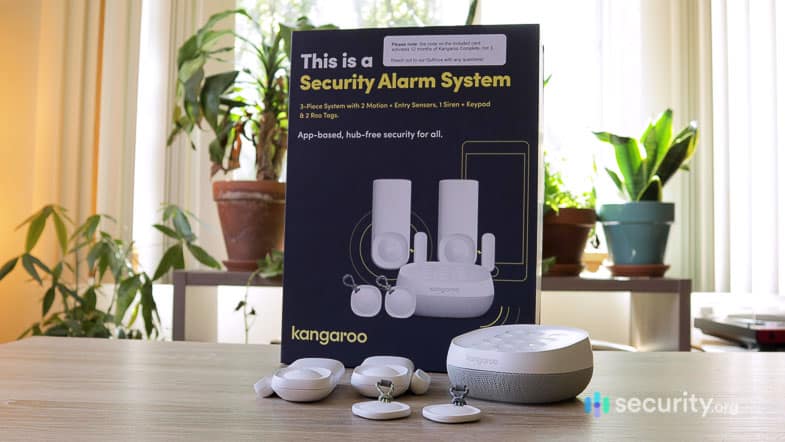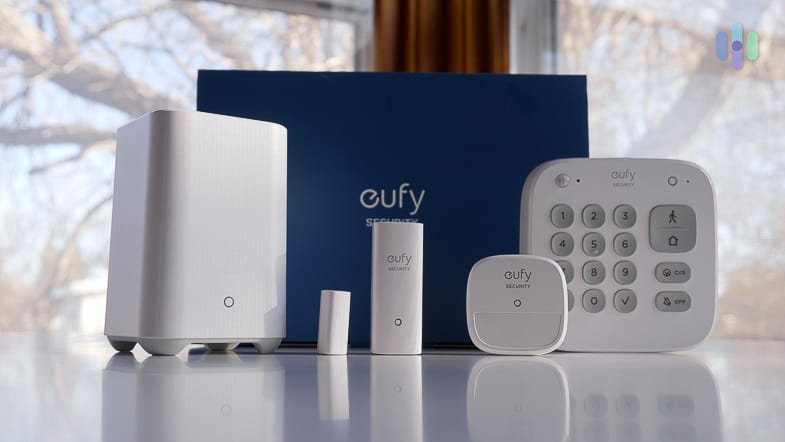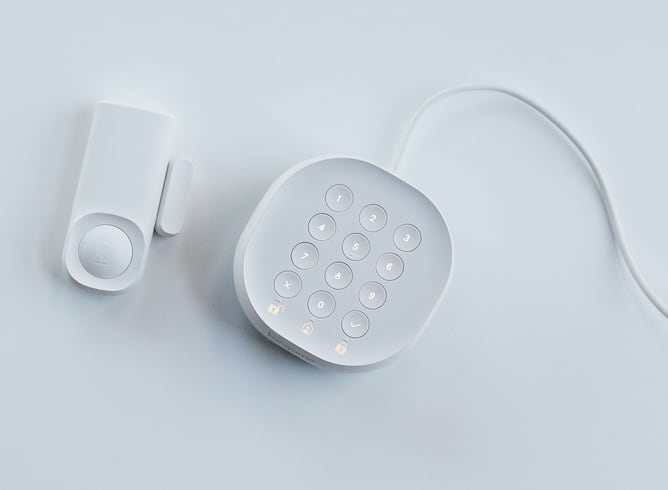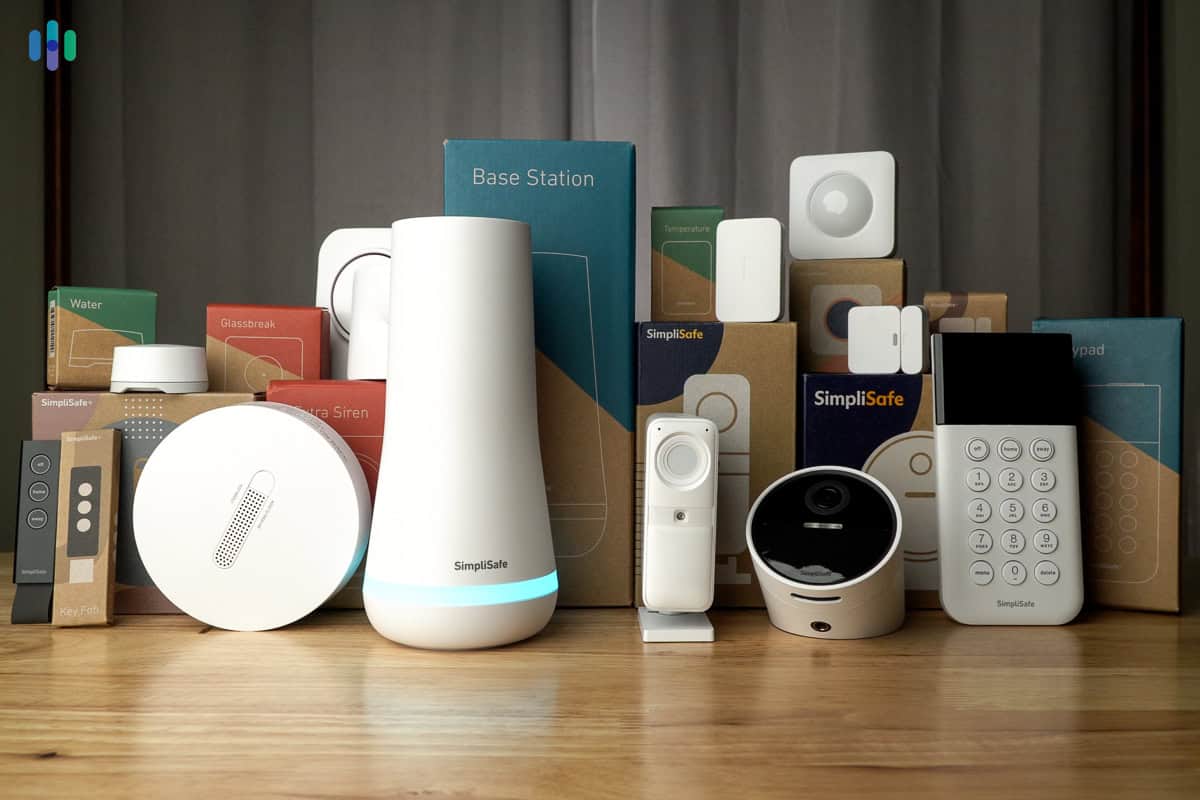You know how when your laptop is connected to Wi-Fi, the connection occasionally drops momentarily? If you’re using an Ethernet cable, that almost never happens. In technology, wireless products are often less reliable than their wired counterparts. But sometimes, a wireless product advances enough that they become the standard. Bluetooth earphones, for example, are now everywhere.
The same is happening in the home security market. When we started out our careers testing out security equipment, the market was still dominated by wired security systems. But today, you can almost never find a true, hardwired system. Most of them are now wireless in some capacities, which leads us to the main point of this page: Have wireless security systems advanced enough to be as reliable as wired security systems?
Are Wireless Security Systems Reliable?
To answer the question once and for all, yes, wireless security systems are reliable. In fact, the best home security systems are all wireless.
Now, that doesn’t mean they don’t have potential reliability issues; they do, and we’ll discuss those below. However, those issues are manageable. As long as you’re aware of what they are and you only purchase the best wireless security systems, there’s no need to stress.
Pros and Cons of Wireless Security Systems
It goes without saying that wireless systems have better features than wired security systems. Being wireless alone opens up tons of possibilities for security systems, like home automation and remote access. Those features have become standard in security systems these days, thanks largely to wireless technology such as Wi-Fi and third-party integrations through local radio frequencies like Z-Wave and Zigbee.
We love those new features, but do the pros outweigh the potential reliability problems? Decide for yourself.
Benefits of Wireless Home Security Systems
Before we get to the potential issues, let’s talk about the advantages and why one might choose wireless alarm systems over wired ones.
- No wires to cut: Burglars might cut wires to disable security systems. These could be landline and cable internet wires, or the wires connecting the sensors to the control panel in a hardwired system. There’s no need for such wires in wireless security systems, so goodbye, wire-cutting burglars!
- Uninterruptible monitoring: Most wireless security systems have battery backups and backup communications. These measures keep the systems running during power, internet, or landline outages for 24/7/365 protection.
- Over-the-air updates: Wireless security systems update their firmware over the air automatically and regularly. That means you can receive updates without having to upgrade equipment. More importantly, these updates can help keep your security system safe from threats such as hacking.
- Streamlined installation: Since they’re wireless, these security systems are easier to install. In fact, most of them are DIY security systems, whereas wired systems often require professional installation. If you prefer DIY over professional installation, go wireless.
- Customization: Customization goes hand in hand with DIY installation. Even after you’ve set up your wireless system, you can add sensors and components as you see fit. With wired, professionally installed systems, technicians will have to come to your house every time you need additional components.
- Remote access: Wireless security systems use either Wi-Fi or cellular signals to communicate. Both communication methods allow for remote access to the systems via smartphone apps. You can use apps to receive alerts, view security camera footage, and arm, disarm, and manage your system. And because of that, the best security systems with a smartphone app are all wireless.
THE MORE YOU KNOW: Over-the-air updates take place either over the internet or through cellular signals, depending on what the system uses for communication. As long as your security system’s communications are up, updates will push through.
Downfalls of Wireless Security Systems
As we promised, here are the potential disadvantages of wireless security systems (and how to manage them).
- Network connectivity problems: Internet-connected security systems rely heavily on the availability of strong internet connections for reporting alerts. When the internet is down, those systems fail to function. They might not even be able to alert you when it matters most. To avoid that issue, we strongly recommend choosing a cellular system – one that uses cellular signals either as backup or as the sole communication method. In our experience, cellular systems are far more reliable than internet-reliant systems.
- Hacking: When you connect something to the internet, it becomes hackable, and that includes security systems. However, the chances of security systems being hacked are extremely low. As long as you maintain the best digital security practices — using strong passwords, two-factor authentication, strong Wi-Fi encryption protocols, VPNs, antivirus software, etc. — you have nothing to worry about.
- Batteries running out of juice: Smoke alarms chirp when they’re running on low batteries; wireless sensors, like motion detectors and door sensors, don’t (although you could get a low-battery alert from the mobile app). Regardless, you have to remember to replace their batteries. The good news is, it takes years before you have to do that. For example, Frontpoint’s motion sensor batteries last up to five years.1
Have Wireless Systems Overtaken Wired Security Systems?
Here’s the real question: Have wireless security systems advanced to the point that they are better than wired security systems? Well, “better” is subjective. If you live in a rural area that doesn’t have good cellular signal reception or reliable internet connections, a wired security system that uses landline is better for you. In most other situations, though, we recommend wireless security systems. The use of wireless connections between sensors, control panels, and monitoring centers allows for faster alert transmission compared to landline connections.
Why does that matter? During burglaries, every second counts. Studies have shown that burglars can get in and out of houses in as little as 90 seconds.2 With a wireless system, you have a better chance of getting the cops to your house before the burglars run away with your stuff.
Wireless systems also offer more and better features. For instance, you can control them from anywhere using apps, whereas hardwired security systems could require physical access to the control panel. Most wireless systems also allow for smart home automation.
There are exceptions, though, like if you have a limited budget. Although you can have a security system without a landline (see the best no-landline security systems), landline monitoring is cheaper than alarm monitoring over Wi-Fi or cellular signals. And as mentioned earlier, you might have to go with a wired system if you live out in the country without good cellular reception. Another situation where a wired security system might be more practical is if you live in an old house wired for a security system. If that’s the case, it’s cheaper to outfit it with wired sensors if they’re compatible with your home’s wiring.
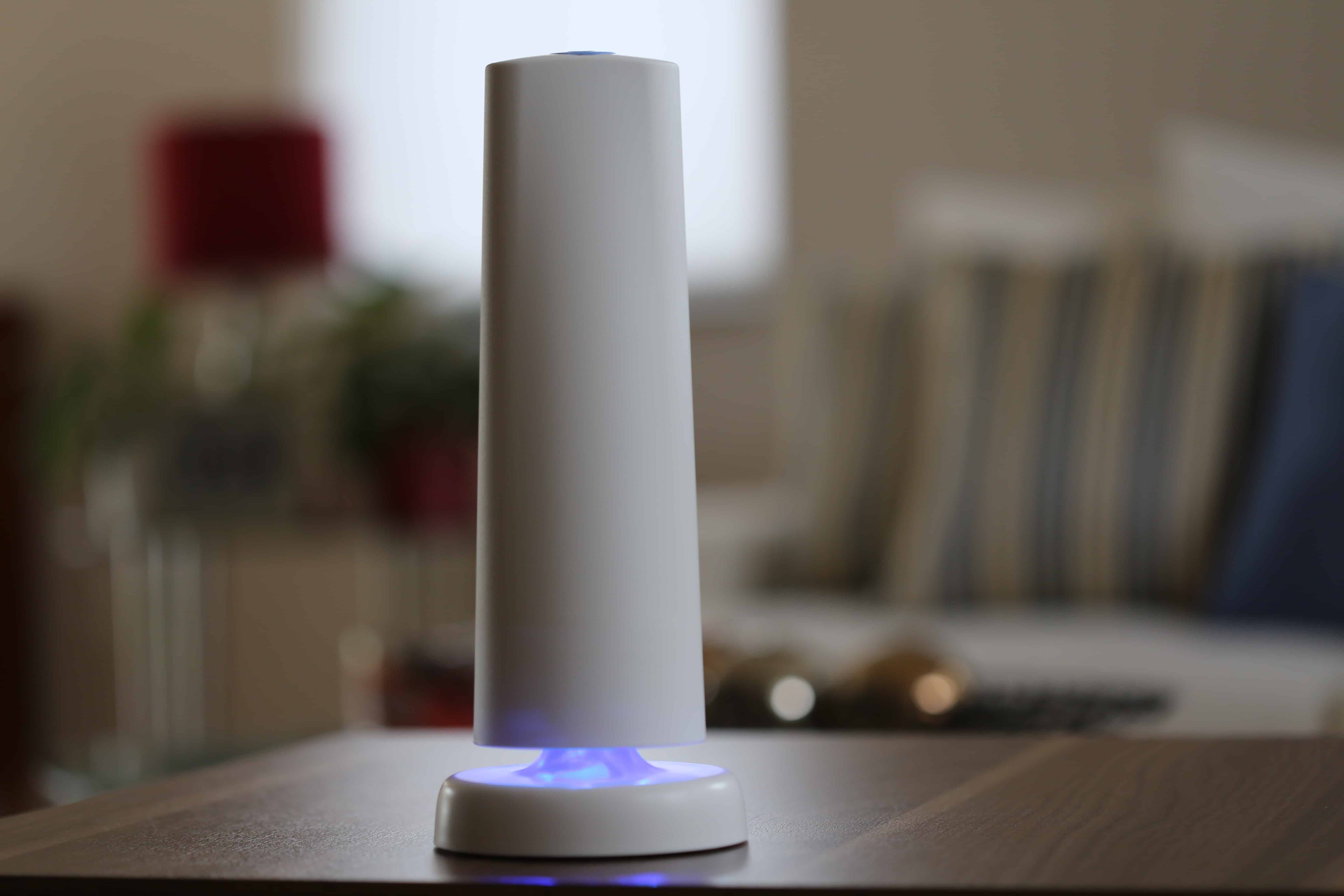
Do Wireless Security Systems Need Wi-Fi?
When we’re talking about wireless devices and their reliability, Wi-Fi interference comes to mind. And yes, wireless interference can be an issue for Wi-Fi-connected security systems.
However, many wireless systems don’t need Wi-Fi at all. As we mentioned above, there are wireless systems that use cellular signals to transmit alerts which is what we recommend. You can read our list of the best cellular security systems for more information.
Did You Know: Cellular security systems communicate via cellular signals, the same signals a cell phone uses to send texts or place calls. So if you have good cellular reception in your home, cellular systems will work for you.
>> Related Reading: Best Security Systems for RVs
How Wireless and Wired Systems Work
As part of our tests, we compared how wired and wireless systems work. We’ve found that they essentially do the same things: detect intrusions, report them, and get the cops involved when necessary. It’s how they do those things that’s different.
How Wired Systems Work
A hardwired security system uses wires running through your house to relay information back and forth to the control panel and sensors. Basically, wires connect every piece of the system. For professionally monitored, wired security systems, the cords even extend beyond the house, as they use landlines to notify alarm companies. Here’s how wired security systems respond to alarm events:
- The sensor that detected the break-in alerts the control panel by sending signals through the wire that connects the two.
- The control panel sounds the alarm siren and the auxiliary sirens.
- The control panel alerts the monitoring station by sending signals via the landline.
- The monitoring center verifies the alarm and calls you and your emergency contacts.
- If necessary, the monitoring center calls for police dispatch.
Professional installation is often a prerequisite with wired systems. If your house has existing security system wiring, the installers will only need to connect the control panel to the alarm box and hook up the sensors. If it doesn’t have existing wires, the technicians will have to build it from scratch, which means drilling and running wires through the ceiling, attic, or basement.
How Wireless Systems Work
Two things make security systems wireless:
- Wireless components: In wireless systems, control panels, sensors, and other components connect to each other wirelessly.
- Wireless communication: They also use wireless communications such as Wi-Fi or cellular signals to send alerts.
FYI: Some alarm companies, such as ADT, offer security systems with wireless components that still require landlines.3
Although some wireless systems require professional installation, most are DIY. You will receive all the components, then all you need to do is place them, pair them with the control panel, and activate the system. In the case of internet-connected wireless systems, you’ll also need to connect the control panel to your home’s Wi-Fi network.
Once the system is online, here’s how it responds to alerts (keep in mind that every step of the process uses wireless communication):
- The sensor that detected the break-in sends alert signals to the control panel wirelessly.
- The control panel sounds the alarm.
- Simultaneously, the control panel alerts the monitoring center and the homeowner over Wi-Fi or cellular signals.
- The monitoring center verifies the alarm and contacts the user.
- If they deem it necessary, the monitoring center requests police dispatch.
Wired or Wireless: What the Best Alarm Companies Offer
Whether you’ve chosen to go wireless or stick with wired systems, here are the types of security systems that our top 10 alarm companies offer.
| Best security system review link | Wired security systems | Wireless security systems | Pricing link |
|---|---|---|---|
| SimpliSafe review | No | Yes | SimpliSafe pricing |
| ADT review | Landline | Yes | ADT pricing |
| Cove review | No | Yes | Cove pricing |
| Vivint review | No | Yes | Vivint pricing |
| Alder review | No | Yes | Alder pricing |
| Frontpoint review | No | Yes | Frontpoint pricing |
| abode review | No | Yes | abode pricing |
| Deep Sentinel review | No | Yes | Deep Sentinel pricing |
| Ring Alarm review | No | Yes | Ring Alarm pricing |
| Xfinity review | No | Yes | Xfinity pricing |
Are Wireless Security Cameras Reliable?
Aside from the usual security system components — control panels, sensors, smoke alarms, CO detectors — security cameras play a big part in home security. As with security systems, there are wired and wireless security cameras. But are wireless security cameras reliable, and how do wireless security cameras work?
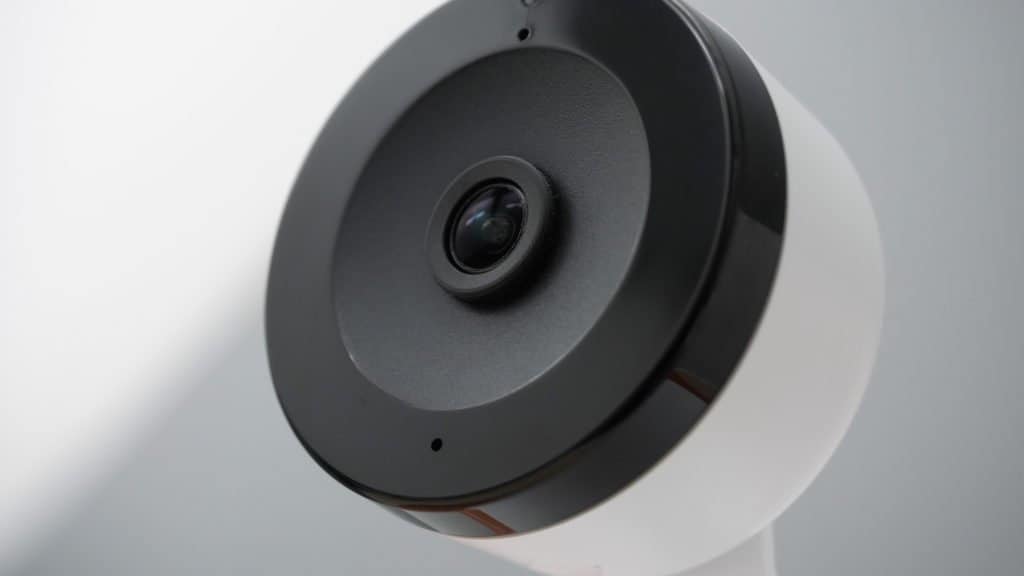
Wired vs. Wireless vs. Wire-Free
Before we answer that, let’s define “wireless” in terms of security cameras. There are three types of cameras vis-a-vis wires.
| Types of cameras | Power source | Internet connection |
|---|---|---|
| Wired cameras | Plugged in | Ethernet cable |
| Wireless cameras | Plugged in | Wi-Fi |
| Wire-free cameras | Battery | Wi-Fi or LTE |
- Wired: Wired cameras use wires for both power and internet connection. Power-over-Ethernet or PoE security cameras and plugged-in cameras connected to network video recorders (NVRs) are examples of wired cameras.
- Wireless: Wireless cameras connect to the internet over Wi-Fi, but they are still plugged into power outlets. The Nest Cam is an example. You can read our Nest Cam review for more details.
- Wire-free: Wire-free cameras are completely wireless. They use batteries for power and Wi-Fi or LTE signals to connect to the internet. Arlo is arguably the most popular brand that offers wire-free cameras. It also pioneered LTE-enabled wire-free cameras when it launched the Arlo Go. Learn more in our Arlo camera review.
Are Wireless Cameras Reliable?
It’s undeniable that wired cameras are more reliable than wireless cameras. However, wireless camera manufacturers have taken huge strides in making their products reliable enough. You just need to know what features to look for to avoid any issues.
- Cloud and local recording: One of the concerns with wireless cameras is that they can’t send recordings to the cloud when the internet is down. If you can’t trust your internet service provider to keep your cameras online, get wireless cameras with both local and cloud recording. That way, you can still access your cloud recordings, but you have backup local storage in case your internet goes down.
- Battery or solar power: Another issue, which affects both wired and wireless cameras, is power outages. If you need cameras that can stay on during blackouts, battery-powered and solar-powered cameras are the best options. You can head over to our Ring security cameras review for examples, as Ring offers several solar and battery-powered cameras. One is the Ring Stick Up Cam Battery, which has a battery life of six to 12 months.
- Dual-band Wi-Fi: Things like microwave ovens, cell phones, smart home devices, and even your neighbor’s Wi-Fi can interfere with your cameras’ Wi-Fi connectivity. The 2.4 GHz Wi-Fi band is particularly prone to such interference,4 so cameras that can use both the 2.4 GHz and 5 GHz Wi-Fi bands are more reliable.
Privacy Issues With Wireless Cameras
Aside from potential reliability issues, wireless cameras have some privacy issues. For example, there have been strings of incidents where hackers spied on homeowners through Ring security cameras.5
However, these breaches of privacy didn’t result from the cameras being wireless, but from the cameras connecting to the internet. Even wired IP cameras are subject to hacking, as proven by a recent finding that a website had been livestreaming footage of hacked cameras.6 The best we can do is to follow good digital security practices such as these:
- Change default account passwords to secure passwords.
- Use a VPN to hide our IP addresses. Learn how to set up a VPN.
- Use security cameras with encryption.
- Turn on two-factor authentication.
- Use secure Wi-Fi protocols, like WEP, WPA, or WPA2.
- Buy antivirus software for the devices we use to monitor our cameras. Read about how antivirus works.
If you do those things, you’ll enjoy better privacy, whether you have wireless or wired security cameras.
Recap
All in all, wireless security systems, including wireless and wire-free cameras, are reliable. Plus, with all the features they offer that wired security systems don’t, we think that going wireless is the right choice for most people. If you’re ready to get started, check out our home security system guide to find out which features you should look for.
FAQs
Before we end this article, let’s answer some common questions about wireless security systems.
-
Are wireless security systems reliable?
Yes, wireless security systems are reliable. While there are potential reliability issues, they are manageable. For example, if you’re worried about the reliability of your internet connection, choose wireless systems with cellular backup. If you’re worried about hacking, you can take steps to make your wireless system less vulnerable, such as using strong account passwords, installing antivirus on your devices, and utilizing secure Wi-Fi protocols only.
-
Which is better, wired or wireless security systems?
To protect your home, wireless security systems are better. Their wireless connections allow for more advanced features, like smart home automation, remote access via apps, and faster communication of alerts. Wireless security systems are also easier to install, as they don’t require drilling. Lastly, they are impervious to the known burglary technique of cutting wires to disable security systems, simply because there are no wires to cut.
-
Are wireless security systems secure?
Yes, wireless security systems are secure from both physical and digital attacks. Since there are no wires, burglars can’t disable wireless systems by cutting landlines. Inclement weather doesn’t affect most wireless systems either, especially if you have cellular backup.
As for cyberattacks such as hacking, the chances of those happening to your security system are extremely low. Multiple studies have shown that burglars prefer conventional break-in methods, like cutting landlines or smashing control panels, over advanced and highly technical methods such as hacking.
-
Do wireless security systems need Wi-Fi?
Some wireless security systems need Wi-Fi, but not all. Internet-connected security systems use Wi-Fi, but many security systems use cellular signals to communicate. If you’re worried about your Wi-Fi’s reliability, you can choose from dozens of cellular security systems.
